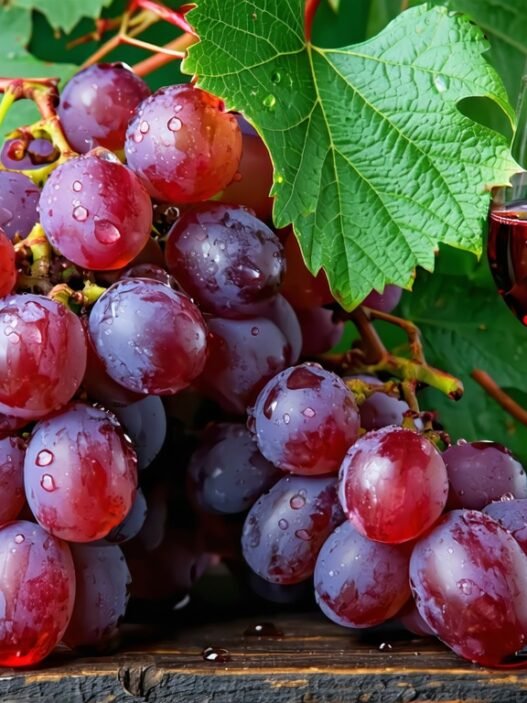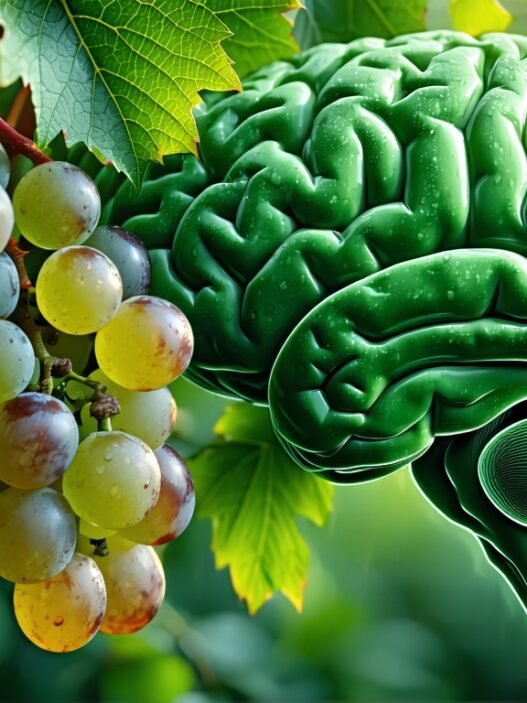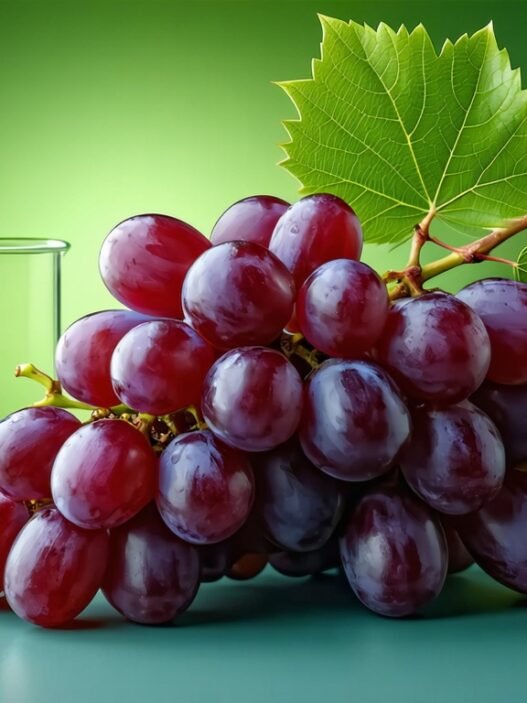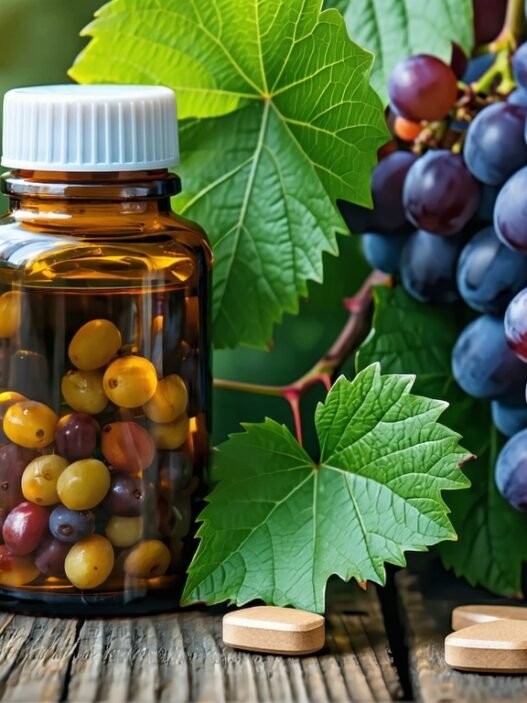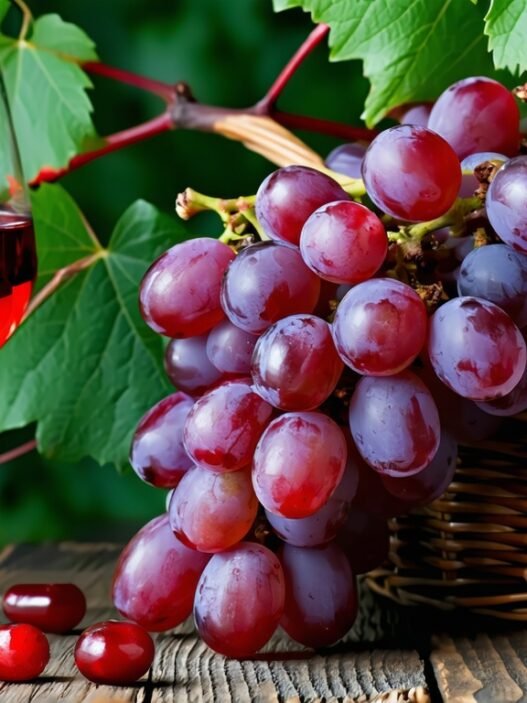Understanding Resveratrol
What is Resveratrol?
Resveratrol is a natural compound categorized as a polyphenol, primarily recognized for its antioxidant properties. Found in various plants, resveratrol serves as a defense mechanism against environmental stressors, including UV radiation and infections. In recent years, it has gained attention for its potential benefits related to health, especially concerning longevity and immune system support.
Research suggests that resveratrol may play a significant role in promoting balanced immune function and reducing inflammation. This makes it a promising candidate for those seeking to enhance their overall well-being and longevity. For a more in-depth understanding of the advantages of resveratrol, consult our resource on resveratrol benefits.
Natural Sources of Resveratrol
Resveratrol is found in several natural food sources, primarily in the skin of red grapes. However, it is also present in various other fruits, nuts, and some plant-based substances. Below is a table listing common sources of resveratrol along with their approximate resveratrol content.
| Food Source | Resveratrol Content (mg per 100g) |
|---|---|
| Red Grapes | 0.3 – 1.0 |
| Red Wine | 0.2 – 5.0 |
| Peanuts | 0.01 – 0.15 |
| Blueberries | 0.03 – 0.07 |
| Dark Chocolate | 0.02 – 0.7 |
| Mulberries | 0.1 – 0.2 |
While these foods can contribute to dietary resveratrol intake, many individuals also choose to supplement their diet with resveratrol supplements to ensure adequate consumption. It’s essential to consider both food sources and potential supplements when integrating resveratrol into a health-focused routine.
Including resveratrol-rich foods in one’s diet not only supports immune function but may also contribute to overall health and longevity. To explore more about the various resveratrol sources, visit our detailed article on resveratrol sources.
Resveratrol and Longevity
Research into resveratrol has revealed its potential role in promoting longevity. This polyphenol, known for its presence in red wine, certain fruits, and other natural sources, has garnered attention for its anti-aging properties.
The Link Between Resveratrol and Aging
Resveratrol has been studied extensively in relation to the aging process. Its ability to activate certain genes associated with longevity, like the SIRT1 gene, has been a focal point in anti-aging research. These genes help regulate cellular processes including metabolism and stress response, which may contribute to an extended lifespan.
The following table summarizes key studies that demonstrate the relationship between resveratrol and aging:
| Study | Findings |
|---|---|
| Study A | Found that resveratrol activates sirtuins, promoting cellular repair. |
| Study B | Showed improvements in lifespan in model organisms exposed to resveratrol. |
| Study C | Indicated potential benefits for age-related diseases, enhancing overall healthspan. |
Potential Benefits of Resveratrol for Longevity
Beyond its role in activating longevity genes, resveratrol offers various health benefits that could contribute to a longer life. Some of the notable benefits include:
-
Antioxidant Protection: Resveratrol acts as a powerful antioxidant, combating oxidative stress that can lead to cellular damage and aging. Detailed information about these benefits can be found in our article on resveratrol benefits.
-
Inflammation Reduction: Chronic inflammation is linked to aging and age-related diseases. Resveratrol may help reduce inflammation, potentially leading to better long-term health. For more on this aspect, see our article on resveratrol for inflammation.
-
Heart Health: Resveratrol has shown promise in improving heart health, which plays a crucial role in longevity. It may aid in lowering blood pressure and cholesterol levels. Additional insights can be found in our articles on resveratrol for cholesterol and resveratrol for blood pressure.
-
Cognitive Support: As cognitive decline is a significant concern with aging, resveratrol’s potential to enhance brain health and memory is noteworthy. More information can be found in our articles on resveratrol for memory and resveratrol for brain health.
-
Weight Management: Resveratrol may play a role in metabolism and weight control, which are critical when considering longevity strategies. For details, visit our article on resveratrol for weight loss.
The multifaceted ways in which resveratrol may support longevity show great promise. Its incorporation into a health-focused lifestyle, alongside other beneficial approaches, can lead to improved well-being as individuals age.
Resveratrol and the Immune System
Understanding the relationship between resveratrol and the immune system is crucial for those interested in longevity and overall health. This section examines how resveratrol provides immune support and enhances immune system function.
Role of Resveratrol in Immune Support
Resveratrol, a natural compound, plays a significant role in supporting the immune system. It is known for its anti-inflammatory and antioxidant properties, which help combat oxidative stress and reduce inflammation in the body. Chronic inflammation can weaken the immune response, leading to various health issues as one ages.
Some key benefits of resveratrol related to immune support include:
- Anti-inflammatory properties: Resveratrol helps inhibit the production of pro-inflammatory cytokines, which can contribute to chronic diseases.
- Antioxidant action: It scavenges free radicals, reducing oxidative damage in cells and supporting overall immune health.
- Modulation of immune function: Resveratrol may enhance the activity of immune cells such as T-cells and macrophages, which play a vital role in the body’s defense mechanisms.
These attributes highlight the potential of resveratrol as an integral part of a strategy for maintaining a healthy immune system, especially for those focused on longevity.
How Resveratrol Boosts Immune System Function
Research indicates that resveratrol can boost immune system function through several mechanisms. These include enhancing immune cell activity, improving communication between cells, and promoting the production of protective molecules.
| Mechanism | Description |
|---|---|
| Immune Cell Activation | Resveratrol can stimulate natural killer (NK) cells, which attack infected or cancerous cells. |
| Modulation of Cytokines | It modulates cytokine production, leading to a balanced immune response and reduced chronic inflammation. |
| Supporting Gut Health | Resveratrol promotes gut microbiota diversity, which is crucial for a healthy immune response. |
Additionally, resveratrol’s impact on aging pathways, such as those involving sirtuins, suggests that it may help in maintaining immune function, which often declines with age. This lays a foundation for further exploring its health benefits and applications in health and longevity.
By incorporating resveratrol into their diets—through sources like resveratrol foods or resveratrol supplements—individuals can potentially enhance both their immune function and overall health, making it a valuable addition to anti-aging strategies.
Incorporating Resveratrol into Your Routine
Dosage and Usage Guidelines
When considering the consumption of resveratrol, it is vital to adhere to recommended dosages to maximize its benefits while minimizing potential risks. Research indicates that typical dosages range from 100 mg to 500 mg per day for health enhancement purposes.
| Purpose | Recommended Dosage (mg/day) |
|---|---|
| Immune support | 100 – 300 |
| Anti-aging | 250 – 500 |
| Cardiovascular health | 150 – 500 |
| General wellness | 100 – 200 |
It’s advisable to begin with a lower dosage to assess individual tolerance, especially for those new to resveratrol supplementation. Gradually increasing the dose may lead to better results while ensuring safety. For more information regarding the suitable amounts, consider visiting our article on resveratrol dosage.
Possible Interactions and Side Effects
While resveratrol is generally regarded as safe for most individuals, it’s essential to be aware of potential interactions and side effects. Some users may experience gastrointestinal discomfort, headaches, or allergic reactions. Keeping track of these symptoms can help determine if adjustments are necessary.
Resveratrol may also interact with certain medications, especially blood thinners, anti-platelet drugs, and some cancer therapies. Below is a brief overview of medications that may interact with resveratrol:
| Medication Type | Interaction Risk |
|---|---|
| Blood thinners | Increased risk of bleeding |
| Anti-platelet drugs | Enhanced effects of medication |
| Cancer medications | Potential alteration of efficacy |
Individuals should consult a healthcare provider before initiating any resveratrol supplementation, particularly if they are on prescribed medications. For further details regarding side effects, check our article on resveratrol side effects.
Incorporating resveratrol into a daily routine can be a beneficial step toward supporting the immune system and promoting overall wellness. For those looking for specific resveratrol-rich foods, visit our article on resveratrol foods to learn more about dietary sources. Understanding these factors will enable individuals to make informed decisions regarding resveratrol for immune system support and its potential in enhancing longevity.
Lifestyle Factors for Longevity
Achieving longevity and promoting overall health encompasses various lifestyle factors, including diet, exercise, stress management, and sleep quality. These elements not only support well-being but may also enhance the effectiveness of resveratrol for immune system support.
Importance of Diet and Exercise
A well-balanced diet rich in nutrients is fundamental for longevity. Incorporating foods high in antioxidants, vitamins, and minerals can aid in reducing oxidative stress and inflammation. Certain foods, like berries, nuts, and leafy greens, complement the benefits of resveratrol found in sources like red wine and grapes.
Regular physical activity is equally important. Exercise has been linked to improved metabolism, better mood, and enhanced immune function. The synergy between a nutritious diet and exercise can amplify the potential benefits of resveratrol supplements, making the body more resilient against age-related decline.
| Component | Recommended Frequency |
|---|---|
| Moderate exercise | At least 150 minutes/week |
| Strength training | 2-3 times/week |
| Fruits & vegetables intake | 5 servings/day |
| Whole grains | Include daily |
Stress Management and Sleep for Longevity
Chronic stress can have detrimental effects on health, potentially accelerating the aging process. Techniques such as mindfulness meditation, yoga, and deep-breathing exercises can help mitigate stress levels. Managing stress not only promotes mental well-being but also supports a healthier immune system, working in conjunction with resveratrol for immune system enhancement.
Quality sleep is another critical factor for longevity. During sleep, the body repairs and regenerates. Lack of sleep has been associated with numerous health issues, including a weakened immune response.
| Sleep Quality | Recommended Duration |
|---|---|
| Adults aged 35-70 years | 7-9 hours/night |
Incorporating these lifestyle factors can further optimize the immune-supportive properties of resveratrol and promote overall health. For more information on the benefits of resveratrol, read about resveratrol benefits and explore its implications in areas such as resveratrol for skin and resveratrol for weight loss.















